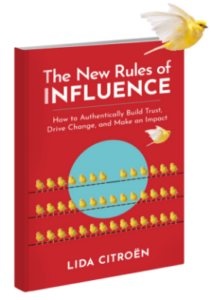If you’ve graduated or will be graduating soon, my course via LinkedIn Learning, Job Hunting for College Grads, is a resource to prepare you for any pitfalls ahead.

The gown is returned; the cap has been signed by classmates; the ceremony is finished. As a recent college or university graduate, now the hard work begins. For some of you, graduation means you take a week or two to relax and then you start the job you secured prior to finishing school. You move from university to career seamlessly.
For others of you, the push to graduation left you little time to pursue or secure a job after school. The summer is a time to focus on “what’s next” and find your place in the professional landscape.
Regardless of whether you have a job after graduation or not, here are four classic mistakes recent graduates make and steps to avoid them for the sake of your (long term) career.
1. Losing your sense of self
In your college days, perhaps you lived the role of the student athlete, the literary prodigy, the future politician, or the budding economist. You likely identified with clubs, groups, or programs that helped support your developing sense of self and identity.
Now, entering the job market, you quickly realize those identities are shifting. The student athlete in the business world is valued for a sense of commitment and focus, but your swimming or tennis skills have less relevance to a job as a junior project manager in an accounting firm.
HAVE A JOB? If you have a job secured after college, be mindful about conforming to norms too much in the new culture you’re a part of. We all want to fit in and be accepted, but you are still very impressionable and keeping your own personal sense of style, identity, vision, and passion is critical. Watch others and learn from them, but do not try to be them.
WANT A JOB? In a post-college job search, the natural tendency is to try to please everyone you meet — from recruiters to hiring managers to parents. Instead, focus on your personal brand and what makes you tick. Are you a people person who likes to work in an office? Consider a job in a non-profit. Do you like the outdoors and work well independently? Maybe a program that serves nature or animals would be exciting for you?
2. Indiscretion on social media
A slippery slope for most college graduates is maintaining that sense of anonymity or even over-sharing you may have developed on social media. Well before graduation, you should have focused on the online reputation you’re building for yourself, recognizing that employers, colleagues, and your business influencers will be noting your online behavior.
Take advantage of the social media tools most used by your target audiences. If you are going into a business job/career, LinkedIn will be very valuable. This is the site where professionals network, connect, and share information with other professionals. For jobs that have a strong social pull, Facebook is very popular, as is Twitter. Consider the industry, audience, and platform, and keep your online presence consistent with your personal brand.
HAVE A JOB? After college, your online presence should reflect your passions, focus, and work. Post about things in your industry, what you are learning, and how you are applying your talents to your new job. Always adhere to the social media policy of your employer. If you weren’t given this in your on boarding or training, be sure to ask for it. Companies have rules and protocol for what you can post online, and you always want to be compliant.
WANT A JOB? When looking for a job, use social networking to your advantage! Most recruiters and hiring managers tell me that they scour social networks to find candidates — they look at the kinds of posts they make and look for individuals who share the passions and values of the company, who post interesting content, and seem focused on a career in the area the recruiter is hiring for.
Make yourself findable to these hiring professionals by staying consistent (in tone, content, and message) and participating in groups and forums where your target audience hangs out.
3. Losing site of your networking
Networking (online and in person) is one of the most powerful tools you have at your disposal. Even a recent college graduate already has a network — people you met at school, professors, and advisors, individuals you met through internships, community service, or part time jobs. This is your initial network!
Instead of leaving it to chance that you’ll know the right people and they will know you, become focused and intentional about this part of your career. Develop a list of who you know, who you should know, and how you will connect to them (online or in person). This is how seasoned professionals start, build, and work an intentional network.
HAVE A JOB? The relationships you will build in your early career can become even more meaningful as you progress. Listen for what people need and want and try to become a valuable resource for them. Someone needs to find a great graphic designer? Connect them with someone you know who might be a great fit.
Make networking a focused and intentional part of your work early in your career. You never know where that colleague of today will end up later in life!
WANT A JOB? When searching for work, networking becomes the backbone of your job strategy. Every day seek out people to connect with on LinkedIn. Then, send a personalized introduction stating why you want to connect, what you have to offer, and what you would like as a next step (e.g. meet for an informational interview, ask them to review your resume, or more).
When you meet someone in person, have a business card ready to hand them that lists your name, email, cell phone and maybe a description of your value proposition. Have a follow up strategy thought out in advance so you can immediately get in touch with them. This is how you grow a network that will sustain you over your entire career.
4. Forgetting to say “thank you”
The art of appreciation and gratitude is highly underrated. In today’s busy world, many professionals forget to say “thank you” to someone who has helped them. Whether you ask someone for an introduction to a hiring manager, for advice on a job search, for tips on starting a new job or for an informational interview, a personalized, handwritten note is ALWAYS appropriate.
I have sat with many senior business executives who have shown me the notes sent to them following their college graduation address, input to a group of university students, or after spending time with a recent graduate interested in a career in their industry. These people are busy and getting time with them is tough. Maybe your advisor or parents helped you meet them and this executive gave you some advice — an email is not enough. Send a personalized note of appreciation on a nice (professional-looking) notecard.
Online, be sure to acknowledge and appreciate introductions, words of advice, or support you receive from your network. When someone takes the time to help you, they hopefully do so with no expectations, so when you send them a note or follow up to let them know how their advice helped you, they are thrilled, and you’ve made a strong impression.
Your personal brand — your reputation — is completely within your control to define and design. Starting today, take charge of the way you interact, dress, communicate, and build relationships with friends, professionals, and colleagues.
Graduation is a huge milestone in your life — take the lessons you learned and let them ground you in who you will be …. not just what you will do for a living.


